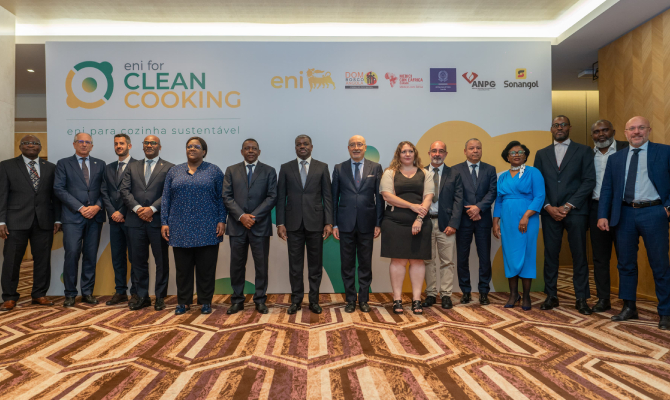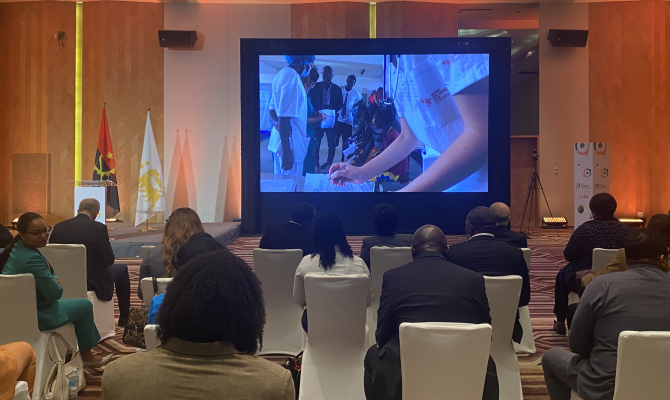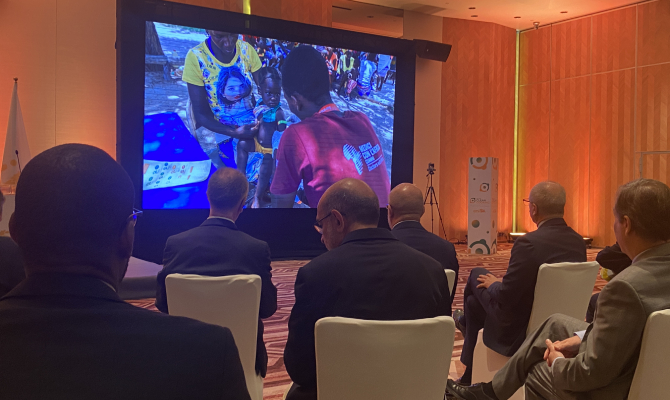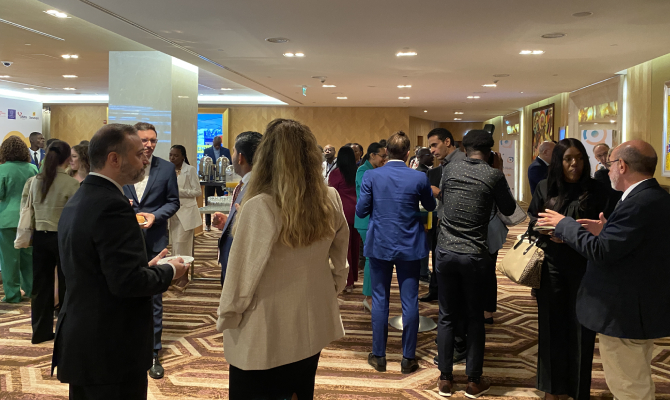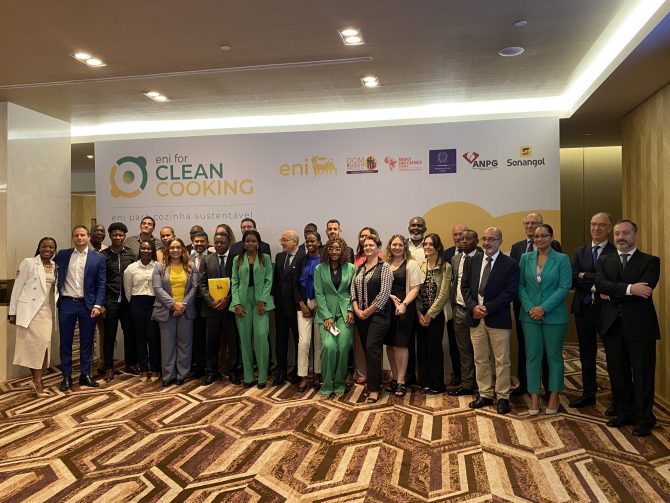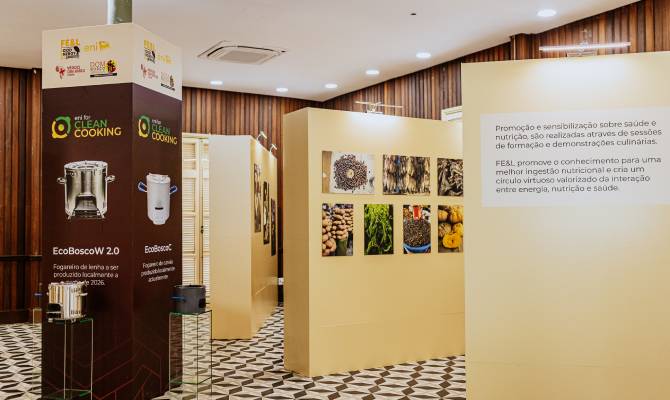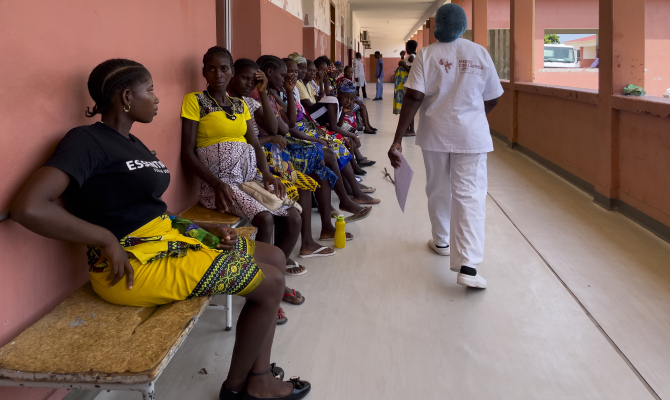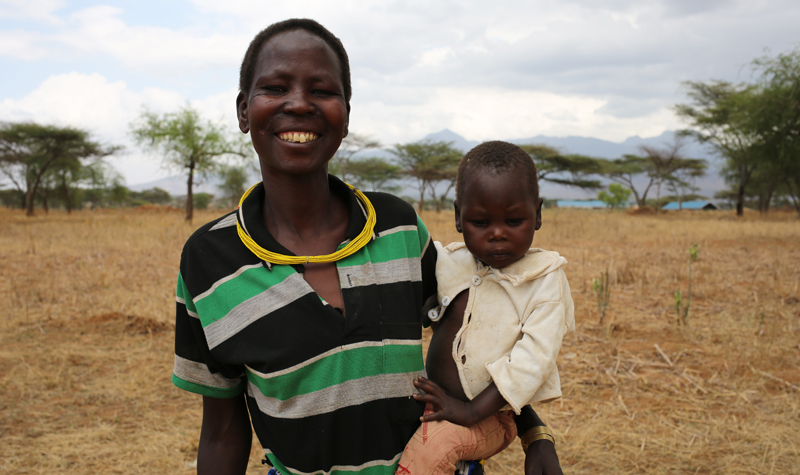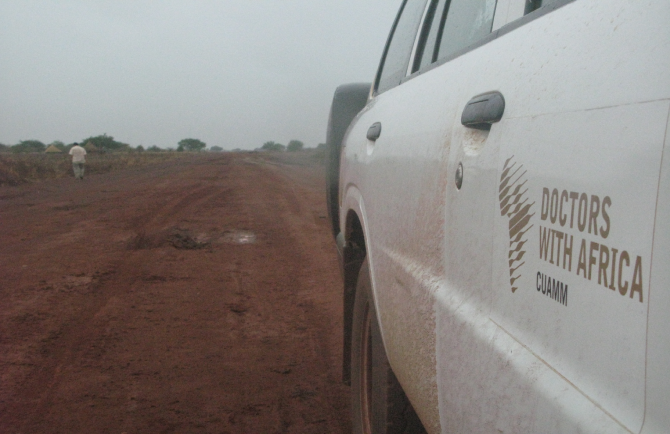Doctors with Africa CUAMM together with Eni and in collaboration with Don Bosco Salesian promotes its latest intervention for the promotion of access to improved cooking methods in Uige Province, Angola with the aim to improve the health outcomes of the population, especially women and children. The intervention is part of the Clean Cooking Program to advance at least six SDGs, including Good health and well-being.
The launch event took place today, in Luanda at the presence of the Minister of Health – Silvia Paula Valentim Lutucuta, the Angolan Secretary of State for Petroleum and Gas – José Alexandre Barroso, and the Italian Ambassador – Cristiano Gallo, along with project partners Eni and other stakeholders involved in the initiative, such as the Salesians of Don Bosco.
Starting with the distribution of improved cookstoves (ICs) across 16 municipalities of the province, the intervention aims to promote access to sustainable cooking among local communities thus reduce malnutrition and improve health outcomes, with a focus on children under 5. Following the distribution of ICs, a second phase of the intervention will be guided by health community agents (HCA) to conduct education activities on nutrition and sustainable cooking. 800 HCA will be trained by CUAMM to sensitize the community through the adoption of Social and Behaviours Change Communication Strategy (SBCC) while 3 municipalities are targeted in a wider health intervention that include the support to health facilities in the prevention and treatment of both malnutrition and malaria in children under 5-years of age. Such intervention will also ensure the continuum of care from community to secondary level to hospitalization, hence benefit about 150,000 recipients.
«This program not only aims to guide the ecological transition in terms of energy but also encompasses aspects related to health, education, and the creation of new jobs, doing so with the involvement of Doctors with Africa CUAMM and the Salesians of Don Bosco, entities with a well-established presence here in Angola and known for their commitment to the health and well-being of the Angolan population. I would therefore like to emphasize the importance of this initiative, which perfectly embodies the spirit of the Mattei Plan, the strategic collaboration plan with the African continent launched by the Italian government last January during the Italy-Africa Assembly,» stated the Italian Ambassador to Angola, Cristiano Gallo.
In order to ensure the quality of health care and guarantee service availability, in each of the three municipalities CUAMM is committed to support 1 Special Nutrition Unit (UEN) and 4 Mobile Therapeutic Programme (PTPA) that could treat moderate but also severe SAM without complications.
«Doctors with Africa CUAMM has been working in Angola since 1997 starting right in Uige province with the aim to support the health system severely affected by the civil was – says Joaquim Thomas, CUAMM Country Manager in Angola. Over the past 20 years, CUAMM has been walking alongside the people of Angola expanding its intervention to the capital Luanda and the southern province of Cunene. This latest intervention in Uige not only gives us the opportunity to go back to the start but also to have an impact on the health indicators that to date remain a concern. By penetrating into the community and sharing good nutrition and hygiene practices we aim to create an effective, long-lasting and sustainable impact».
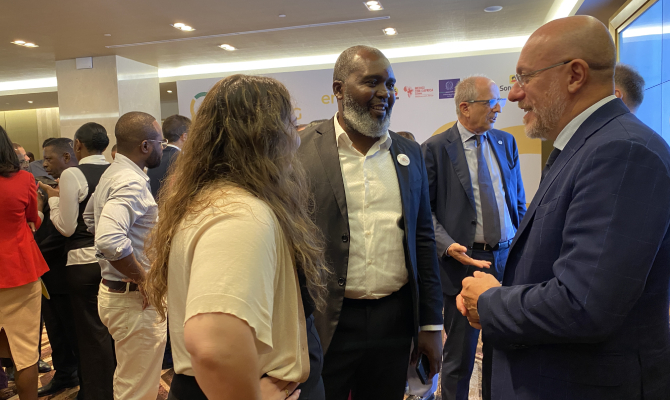
THE PROGRAMME
2.4 billion people, or 40% of the world’s population, rely on polluting open fires and inefficient fuels such as wood, charcoal, coal, and kerosene for cooking. Traditional cookstoves, prevalent in many rural and low-income households in sub-Saharan Africa, often rely on simple mud designs and burn solid fuels inefficiently.
«The Clean Cooking program will contribute also to the improvement of our population’s health – stated José Alexandre Barroso, Angola Secretary of State for Petroleum and Gas. Access to improved cooking methods is currently a global priority. In Angola, half of the population still relies on traditional cooking methods that have a major imapct on the health of women and children».
Traditional cooking methods have indeed multiple impacts both in terms of adverse health outcomes and environmental degradation, not to mention the social and economic burden disproportionately affecting women and young girls. Ensuring access to clean cooking in sub-Saharan Africa by transitioning from traditional to improved cook stoves is a key step towards SDGs, including those related to health, environmental sustainability, gender equality and poverty reduction.
- Health impacts: children under five are disproportionately affected by indoor air pollution, with pneumonia being the leading cause of death in this age group, responsible for 1.5 million deaths annually. Moreover, millions of women and girls around the world breathe in harmful smoke while cooking and spend hours walking far distances to secure cooking fuel. Reliance on polluting, open fires and inefficient fuels leads to health impacts like emphysema, cataracts, cancer, and heart disease.
- Women and young girls empowerment: around the world, daily cooking responsibilities are largely held by women and girls. Not only does cooking endanger their health from inhaling toxic smoke, but they may be removed from school because of domestic work like firewood collection, and walk ever-greater distances carrying heavy loads due to forest degradation. The adoption of improved cookstoves can ease the health problems and economic burdens that disproportionately impact them.
- Air pollution: the World Health Organization (WHO) estimates that 4.2 million deaths are attributable to indoor air pollution from solid fuels each year, with 99.9% of these deaths occurring in low- and middle-income countries.
- Higher emissions: according to the WHO, traditional cook stoves contribute to 25% of global black carbon emissions and 3% of global greenhouse gas emissions.
- Deforestation and habitat loss: an estimated 2.4 billion people rely on traditional cook stoves, leading to the annual deforestation of 13.7 million hectares globally.
Transforming cooking methods in sub-Saharan Africa through the introduction of improved cookstoves, may help mitigate health impacts, address environmental concerns, enhance cooking efficiency and promote gender equality. Improved cookstoves have indeed shown better results than traditional stoves in health impacts, gender equality, emissions, resource consumption and air quality. The adoption of a new cooking method would therefore be an economical and social transformation for the society as a whole.
The program implemented by CUAMM is being supported by Eni and implemented in collaboration with Don Bosco Salesian.

